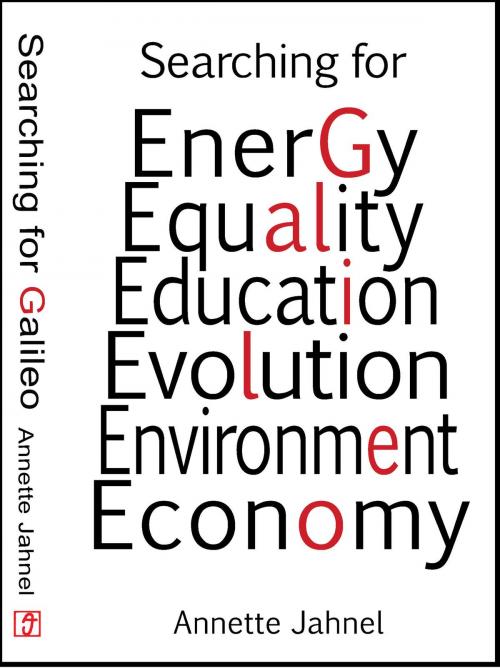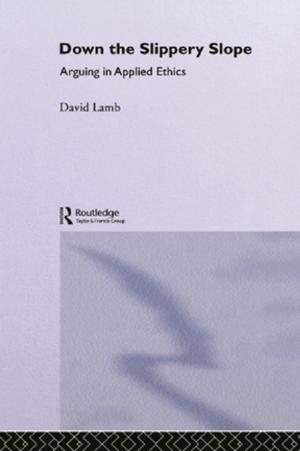Searching for Galileo
Nonfiction, Travel, Lodging & Restaurant Guides, Religion & Spirituality, Philosophy| Author: | Annette Jahnel | ISBN: | 9780987000187 |
| Publisher: | Annette Jahnel | Publication: | June 9, 2018 |
| Imprint: | Smashwords Edition | Language: | English |
| Author: | Annette Jahnel |
| ISBN: | 9780987000187 |
| Publisher: | Annette Jahnel |
| Publication: | June 9, 2018 |
| Imprint: | Smashwords Edition |
| Language: | English |
Annette Jahnel is a generous author, in her writing she leaves room for personal thought and rumination. Searching for Galileo is a book that does not drag you along and spit you out at the end, leaving you wondering what just happened. It invites you to participate in creating what could be the start of a whole new epoch of homo sapiens. An epoch in which we learn to place more emphasis on the brain than the body, as we once again, gain access to mind.
On the surface Searching for Galileo is a travel book in which the author road trips once around the USA, but at its centre stands an exploration of the human brain. ‘How it thinks, what it thinks, and why it thinks what it thinks’.
Inspired by her conversations with Americans across the US, from neuroscientists to accountants, author Annette Jahnel uses her ability to make original connections between scientific and historical facts to come up with original ideas and concepts, making a compelling argument for how the modern thought process evolved. She coins the phrases ‘mental language’ and ‘cold climate thinking’ to describe how sudden and dramatic climatic events forced the evolution of our modern mental language, which according to the author is based on hoarding, hierarchy, heating, and body-centric self-interest.
When she digs into the history of the US and makes comparisons between the First Nations and First Immigrants her thoughts and ideas cut so close to the bone that at times I got my back up. But the book is well referenced, giving weight to her opinions and conclusions. She ends the book on a very hopeful note, making the case that we have the technology to make a paradigm shift in thinking that will allow us to create the peaceful future we all hope for.
Searching for Galileo is a book that contains a message that could not be more perfectly timed, as the USA and the world go through yet another cycle of change that could well be yet another repetition of ancient history ‘just using shinier tools’
“I read it and now I get it. I will read it again, it’s that sort of book, and then I am sure I will understand even more what is going down all around the world today. These pages are the playground of a mental gymnast.”
Annette Jahnel is a generous author, in her writing she leaves room for personal thought and rumination. Searching for Galileo is a book that does not drag you along and spit you out at the end, leaving you wondering what just happened. It invites you to participate in creating what could be the start of a whole new epoch of homo sapiens. An epoch in which we learn to place more emphasis on the brain than the body, as we once again, gain access to mind.
On the surface Searching for Galileo is a travel book in which the author road trips once around the USA, but at its centre stands an exploration of the human brain. ‘How it thinks, what it thinks, and why it thinks what it thinks’.
Inspired by her conversations with Americans across the US, from neuroscientists to accountants, author Annette Jahnel uses her ability to make original connections between scientific and historical facts to come up with original ideas and concepts, making a compelling argument for how the modern thought process evolved. She coins the phrases ‘mental language’ and ‘cold climate thinking’ to describe how sudden and dramatic climatic events forced the evolution of our modern mental language, which according to the author is based on hoarding, hierarchy, heating, and body-centric self-interest.
When she digs into the history of the US and makes comparisons between the First Nations and First Immigrants her thoughts and ideas cut so close to the bone that at times I got my back up. But the book is well referenced, giving weight to her opinions and conclusions. She ends the book on a very hopeful note, making the case that we have the technology to make a paradigm shift in thinking that will allow us to create the peaceful future we all hope for.
Searching for Galileo is a book that contains a message that could not be more perfectly timed, as the USA and the world go through yet another cycle of change that could well be yet another repetition of ancient history ‘just using shinier tools’
“I read it and now I get it. I will read it again, it’s that sort of book, and then I am sure I will understand even more what is going down all around the world today. These pages are the playground of a mental gymnast.”















